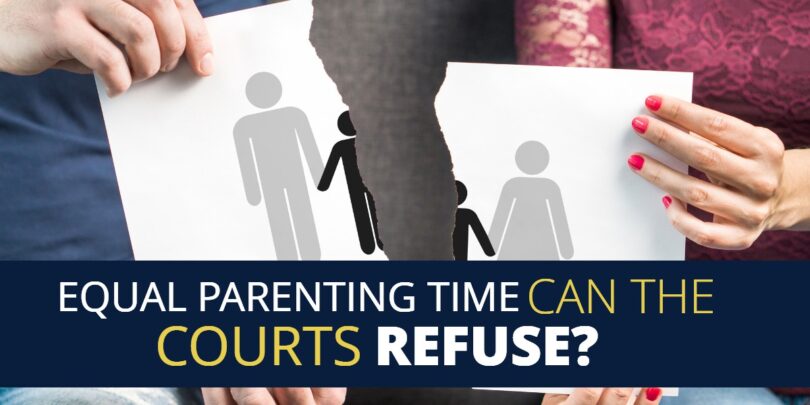Parenting time in Tennessee: Can divorce courts refuse to grant equal parenting time even if that’s what both the husband and wife want?
If divorcing spouses agree that they want 50/50 parenting time with their children (alternating weeks back and forth), can the court order otherwise? Can it “split” custody so as to place the children with one parent during the school year and with one parent during summer vacation?
The Tennessee Court of Appeals says the answer is, YES.
Let’s take a closer look.
In Holmes v. Holmes (decided on February 3, 2014), the divorcing spouses both asked for equal parenting time, alternating weeks back and forth between them. The trial court, however, decided that the father would have the children during the school year and the mother would have them during the summer vacation period (plus some extra holidays and portions of Spring and Fall vacation periods in order to get her more days with them).
The trial court’s decision was influenced by the testimony of a psychologist who had done a custody evaluation, and had opined that problems were likely to develop because the parents had an acrimonious relationship, could not communicate well with one another and disagreed about almost everything.
The mother appealed the trial court’s decision. She argued that it should have implemented the parties’ agreement regarding co-parenting and utilized an alternate-week residential arrangement. The mother pointed to Tennessee Code Annotated § 36–6–101(a)(2)(A)(i), which states,
“Unless the court finds by clear and convincing evidence to the contrary, there is a presumption that joint custody is in the best interest of a minor child where the parents have agreed to joint custody or so agree in open court at a hearing for the purpose of determining the custody of the minor child.”
The Court of Appeals affirmed the trial court. In so doing, it stated, “Mother’s argument is unavailing… because this Court has previously found that such a divided-time arrangement as was instituted in this case is actually a form of joint custody.” Further, the Court of Appeals said:
“The [trial] court found that the parents were unable to agree or cooperate on certain matters, noting that they ‘fight like dogs.’ The court opined that the best way to arrange co-parenting in this case was ‘to have one parent have custody during the school year and the other parent to have custody during the summer months, and to have each of them have the decision making authority during that part of the year in which they have primary custody.’ The court found that the alternate-week schedule would not be successful over an extended period because of the parental differences of opinion. Therefore, the trial court crafted a plan that was intended to ‘minimize the [Children’s] exposure to harmful parental conflict’ as provided in Tennessee Code Annotated § 36–6–404(a)(3). The trial court also determined that this would provide the Children ‘continuity of contact with each of the parents and to grow up knowing and being close to their mother and their father,’ which relates to the ‘love and emotional ties between the parent and Children’ as well as ‘the importance of continuity in Tennessee Code Annotated § 36–6–106(a)(1) and (3).B
When the relationship between divorcing spouses is so acrimonious that they can be expected to fight over issues regarding their children after they divorce, the court may not approve equal parenting time with alternating weeks, even if that’s what the parties desire.
BOTTOM LINE: “YES!” When the relationship between divorcing spouses is so acrimonious that they can be expected to fight over issues regarding their children after they divorce, the court may not approve equal parenting time with alternating weeks, even if that’s what the parties desire.





